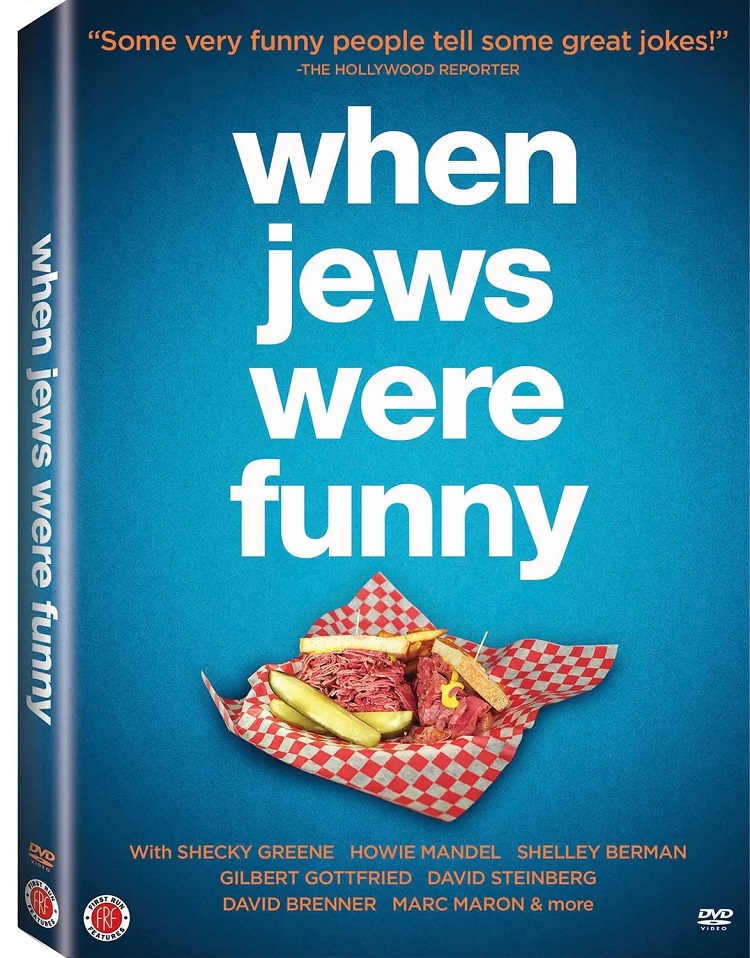
With the star-studded roster of talented comedians interviewed for this project, Canadian documentarian Alan Zweig’s When Jews Were Funny begins as if intended as an oral history about the stand-up comedy tradition. However, the film is actually about Zweig trying to get a better sense of the Jewish tradition he strayed from years ago now that at sixty-one he is the father of a two-year-old girl.
For those familiar with Zweig’s work, this likely won’t come as a surprise. In Vinyl, about record collectors, and I, Curmudgeon, Zweig is not only the director; he’s also one of the subjects. Unfortunately, I wasn’t familiar with Zweig, so the change in narrative comes across like he haphazardly came up with the idea while filming, which could very well be since it seems odd to be asking societal questions like why the stereotypical “old Jews” slurping soup in delis from his childhood are disappearing yet ask only people involved with humor.
The film begins with Zweig sitting with men who came to prominence in the 1950s and ’60s, such as Shelley Berman, Jack Carter, Shecky Greene, and Norm Crosby. Although proud of their heritage, they all seemed slightly put off to different degrees when Zweig labels them as Jewish comedians, as if that somehow limited who they were and what they did, which is understandable considering when they came up in the business.
The interview subjects, both well-known and barely known, include David Steinberg, David Brenner, Modi, Gilbert Gottfried, Stewie Stone, Andy Kindler, Ed Crasnick, Judy Gold, Elon Gold, Eugene Mirman, and Cory Kahaney. There’s also archival performance material of Alan King, Rodney Dangerfield, Harvey Stone, Henny Youngman, and Jackie Mason. Bob Einstein is particularly funny, especially when befuddled by Zweig’s statements like when he says it wouldn’t be so bad if Charles Manson had been Jewish because Jewish people aren’t known as serial killers.
Zweig transitions from show business to asking about the funny people in their families. Are the uncles and aunts that were the source of material for older comedians still around? Insight is offered from a number of people like Howie Mandel and Marc Maron, but the changes brought on by assimilation seem rather obvious.
Although the subjects in When Jews Were Funny are amusing, the potential of what could have been is squandered by the film’s meandering, personal narrative and narrows its accessibility.
Extras on the DVD are: Shecky Mania (4 min) – the comic riffs on different subjects. Shecky Calls Jack (2 min) – Jack receives a call. Jewish Joke Medley (7 min) – includes five people who didn’t make the final cut, Name That Tune (2 min) – Ed Crasnick tells a funny story about his father in an assisted living center. “Kenina Hurra” (2 min) – Zweig discusses what the term means.